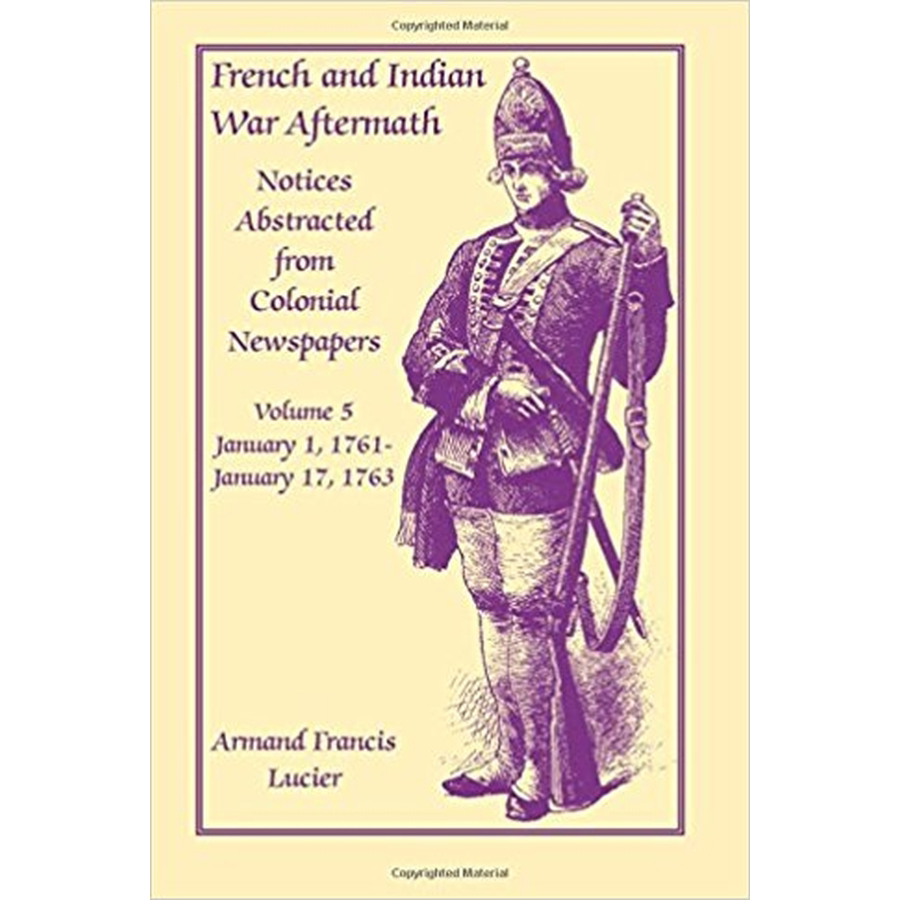French and Indian War Aftermath: Notices Abstracted from Colonial Newspapers, Volume 5
Couldn't load pickup availability
By 1760, the capitulation of Canada by the French and Canadians all but ended the French and Indian War. Blockaded by the powerful British Navy, the people of New France might have been lacking in provisions, but certainly not in fighting spirit. Attempts to retake Montreal and Louisbourg stretched the resources of the British forces, who also were fending off the Creeks and the Cherokees on the western frontier. As if that weren't enough, the best troops and generals in British service were sent to the West Indies, participating in fierce battles for control of Martinique and Cuba. Although the Treaty of Paris did not officially end the French and Indian War until 1763, the exciting events of the years 1761 and 1762 covered here are often glossed over in traditional history books. These newspaper abstracts allow the reader access to the same articles, eye-witness accounts, proclamations and commentaries avidly read and hotly discussed in ordinaries, public houses and taverns of Colonial America. The burning of the Cherokee villages, and the eventual peace that was made, is documented here. The movements of many regiments and ships can be easily followed, and the sorrowful plight of slaves on many of the ships is described with a sense of immediacy that cannot be captured in retrospective histories. The full name plus subject index allows the reader to find soldiers, Indian tribes, ships' names, and regiments. Includes an 1874 map of Cherokee Country.
Armand Francis Lucier
(2000), 2007, 5.5" x 8.5", paper, indices, 368 pp.
ISBN: 9780788415357
101-L1535
